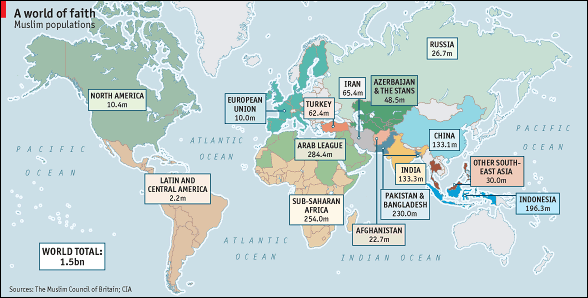Power can be defined as the capabilities, or relative capabilities, of actors such as states. The ability to control or influence outcomes or actions of others. Central to realist works on international relations. The realist gave three assumptions: (1) states are basic units of analysis and are dominant actors over non-actors; (2) force is an effective instrument of policy; (3) high politics over low politics. It is to make A do what B wants A to do which A would not otherwise. Relates and behave in terms of virtue and power as both means and end. The authors were compounded about the the paradigm of realism based on the premise that world politics is essentially a struggle among self-interested states for power and position under anarchy and pursuits of its own national interest. It emboldens real politik as a theoretical outlook prescribing that countries should prepare for war in order to preserve peace. Power shows Mackinder's theory of the Heartland and the related scheme expressed in his key formula: Who rules East Europe commands the heartland; Who rules the Heartland commands the World Island; Who rules the World Island commands the World. This was attested from traditional realist to modernist realist.
To contrast the dominance of realism that causes great wars in the world event. Keohane and Nye developed a relation or relations between two (a dyadic relation) or among more than two units in which one is sensitive or vulnerable to the discussions or actors of the other countries or others and they called this ideas as interdependence. It suggests the flow of capital or money to or from one country may respond to (or be sensitive to) changes in the interest rates in other countries – so called sensitivity interdependence. To the extent that one unit may be adversely affected by its cutoff. To many theorists, such vulnerability dependence may be symmetric (affecting both or all side equally) but it is more likely to be asymmetric (with effects varying from actor to actor). State A may be more dependent on a supply of oil from state B than state B is on the security of its investments in state A. Complex Interdependence, a term developed by the authors that refers to the multiple transnational channels that connect societies, including interstate, transgovernmental, and transnational relations. The resulting relations are extremely complex, with economic interests assuming far greater importance than in classic realism.
The complex interdependence was differ by the realist's concept of 'Balance of Power' that refers to a condition of equilibrium among states. Realists differ on whether the equilibrium or balance among states is (a) created by statesmen or (b) occurs quite apart from the will of statesmen as an inherent characteristics of international politics. Balance-of-power considerations may be used by decision-makers as justification for a given foreign policy. Some critics have noted that the multiple meanings of the term diminish its utility as a concept in international relations theory.
In discussing 'economic interdependence', it was clearly asserted that it is normally refers to the dollar value of economic transactions among regions or countries, either in absolute terms, or relative to their total transactions. Richard Cooper distinguished this “normal usage” from his more restricted concept “the sensitivity of economic transactions between two or more nations to economic developments within those nations.” Economists refers interdependence to the sensitivity of economic behavior in one country to developments or policies originating outside its own borders and think in terms of mutual sensitivity of economic variables. The influence which country A requires in country B by foreign trade depends in the first place upon the total gain which B derives from that trade.
References to this concept of interstate dependence are found in the writings of the early Mercantilists as well as in the writings of Montesquieu and Rousseau. In the twentieth century excellent scholarly discussions of international interdependence have been provided by Sir Norman Angell (1914), Francis Delaisi (1925) and Ramsay Muir (1933). all works contain both conceptual explication and empirical generalizations that are well worth the attention of contemporary scholars. Edward C. Morse has suggested that the analysis of interstate interdependence begins with a central political problem that arose in international economic interchange after WWII. Keohane and Nye object to defining interdependence in terms of “mutual benefit.” In some cases they contend an interdependent relationship may have such negative consequences that both parties would be quite happy to cease contact with one another entirely, foregoing any benefits that such contact may bring.
Mutually unpleasant relationships of interdependence, such as arms race, are maintained because the likely alternatives would be even more unpleasant. The only reason to continue strategic interdependence between the US and Soviet Union is that the alternatives might be worse. Contrary to the view of Keohane and Nye, defining interdependence in terms of the “mutual benefits” to the parties involved does not limit it to situations in which “the modernist view of the world prevails: where threats of military force are few and levels of conflict low; and it does not exclude such cases as the strategic interdependence between the US and Soviet Union. The benefits of interdependence should be defined in terms of the values of the parties and the likely effects on those values of breaking the relationship. If there is little or no effect, or if the parties would actually be better off, the relationship should not be described as interdependent. It is in this sense, and in this sense only, that interdependence involves mutual benefits.
Sir Norman Angell used the following story about two men in boat to illustrate the nature of interdependence:
"The boat was leaky, the sea heavy, and the shore a long way off. It took all the efforts of the one man to row, and of the other to bail. If either had ceased both have drowned. At one point the rower threatened the bailer that if he did not bail with more energy he would throw him overboard; to which the bailer made the obvious reply that, if he did, he (the rower) would certainly drown also. And as the rower was really dependent upon the bailer, and the bailer upon the rower, neither could use force against the other."
Even states at war may be described as interdependent if each would prefer to continue the war relationship rather incur the costs of ending that relationship, e.g. surrender, defeat, or mutual annihilation. Sir Norman drew the conclusion from this anecdote that the degree of interdependence varies inversely with the effectiveness of force. Growth of interdependence is a requisite for the abolition of interstate conflict. Actually, Muir's argument is that the abolition of war is a requisite for survival in an interdependent world in the sense that an interdependent world will be very unpleasant unless war is abolished. Keohane and Nye contend that interdependence has “normally” defined simply as a condition in which events in one part of the world covary with events in other parts of the world. Interdependence in terms of the interlocking relationship arising from the division of labor between highly specialized political units.
The distinction between sensitivity interdependence defined in terms of mutual effects and vulnerability interdependence defined in terms of the opportunity costs of disrupting the relationship, has become widely accepted and is usually attributed to Keohane and Nye. Sensitivity and vulnerability do not necessarily covary to the same degree or even in the same direction.
According to David A. Baldwin, power as relation is defined in terms of an actual or postulated relationship between two or more actors. Thus, to treat dependency as a power term is to imply the existence of at least one other actor. Power relationships vary on many dimensions. A complete description of a power relation would include who is trying to get whom to do what, by what means, where, when. How. At what cost. With what degree of success, ans so on; but a minimum specification of power relation requires less detail. There is general agreement in the social power literature that a minimum specification of a power relation must include both scope and domain. In relating the power costs, it is likely been describe that if state B must forego warm homes, fully employed factories, adequate transportation systems, and high living standards, when state A stops exporting oil, state B is dependent on state A for oil. If, on the other hand, state B can easily get its oil elsewhere or if it is indifferent to warm homes, etc., it is not very different on state A with respect to oil.
Henceforth, in the Social Contract Rousseau explicitly pointed out the disadvantage of dominance: “If one of two neighboring peoples could not do without the other, the situation would be very hard for the former and very dangerous for the latter.” In such a case, any wise nation will very quickly try to relieve the other of its dependency.
To contrast the dominance of realism that causes great wars in the world event. Keohane and Nye developed a relation or relations between two (a dyadic relation) or among more than two units in which one is sensitive or vulnerable to the discussions or actors of the other countries or others and they called this ideas as interdependence. It suggests the flow of capital or money to or from one country may respond to (or be sensitive to) changes in the interest rates in other countries – so called sensitivity interdependence. To the extent that one unit may be adversely affected by its cutoff. To many theorists, such vulnerability dependence may be symmetric (affecting both or all side equally) but it is more likely to be asymmetric (with effects varying from actor to actor). State A may be more dependent on a supply of oil from state B than state B is on the security of its investments in state A. Complex Interdependence, a term developed by the authors that refers to the multiple transnational channels that connect societies, including interstate, transgovernmental, and transnational relations. The resulting relations are extremely complex, with economic interests assuming far greater importance than in classic realism.
The complex interdependence was differ by the realist's concept of 'Balance of Power' that refers to a condition of equilibrium among states. Realists differ on whether the equilibrium or balance among states is (a) created by statesmen or (b) occurs quite apart from the will of statesmen as an inherent characteristics of international politics. Balance-of-power considerations may be used by decision-makers as justification for a given foreign policy. Some critics have noted that the multiple meanings of the term diminish its utility as a concept in international relations theory.
In discussing 'economic interdependence', it was clearly asserted that it is normally refers to the dollar value of economic transactions among regions or countries, either in absolute terms, or relative to their total transactions. Richard Cooper distinguished this “normal usage” from his more restricted concept “the sensitivity of economic transactions between two or more nations to economic developments within those nations.” Economists refers interdependence to the sensitivity of economic behavior in one country to developments or policies originating outside its own borders and think in terms of mutual sensitivity of economic variables. The influence which country A requires in country B by foreign trade depends in the first place upon the total gain which B derives from that trade.
References to this concept of interstate dependence are found in the writings of the early Mercantilists as well as in the writings of Montesquieu and Rousseau. In the twentieth century excellent scholarly discussions of international interdependence have been provided by Sir Norman Angell (1914), Francis Delaisi (1925) and Ramsay Muir (1933). all works contain both conceptual explication and empirical generalizations that are well worth the attention of contemporary scholars. Edward C. Morse has suggested that the analysis of interstate interdependence begins with a central political problem that arose in international economic interchange after WWII. Keohane and Nye object to defining interdependence in terms of “mutual benefit.” In some cases they contend an interdependent relationship may have such negative consequences that both parties would be quite happy to cease contact with one another entirely, foregoing any benefits that such contact may bring.
Mutually unpleasant relationships of interdependence, such as arms race, are maintained because the likely alternatives would be even more unpleasant. The only reason to continue strategic interdependence between the US and Soviet Union is that the alternatives might be worse. Contrary to the view of Keohane and Nye, defining interdependence in terms of the “mutual benefits” to the parties involved does not limit it to situations in which “the modernist view of the world prevails: where threats of military force are few and levels of conflict low; and it does not exclude such cases as the strategic interdependence between the US and Soviet Union. The benefits of interdependence should be defined in terms of the values of the parties and the likely effects on those values of breaking the relationship. If there is little or no effect, or if the parties would actually be better off, the relationship should not be described as interdependent. It is in this sense, and in this sense only, that interdependence involves mutual benefits.
Sir Norman Angell used the following story about two men in boat to illustrate the nature of interdependence:
"The boat was leaky, the sea heavy, and the shore a long way off. It took all the efforts of the one man to row, and of the other to bail. If either had ceased both have drowned. At one point the rower threatened the bailer that if he did not bail with more energy he would throw him overboard; to which the bailer made the obvious reply that, if he did, he (the rower) would certainly drown also. And as the rower was really dependent upon the bailer, and the bailer upon the rower, neither could use force against the other."
Even states at war may be described as interdependent if each would prefer to continue the war relationship rather incur the costs of ending that relationship, e.g. surrender, defeat, or mutual annihilation. Sir Norman drew the conclusion from this anecdote that the degree of interdependence varies inversely with the effectiveness of force. Growth of interdependence is a requisite for the abolition of interstate conflict. Actually, Muir's argument is that the abolition of war is a requisite for survival in an interdependent world in the sense that an interdependent world will be very unpleasant unless war is abolished. Keohane and Nye contend that interdependence has “normally” defined simply as a condition in which events in one part of the world covary with events in other parts of the world. Interdependence in terms of the interlocking relationship arising from the division of labor between highly specialized political units.
The distinction between sensitivity interdependence defined in terms of mutual effects and vulnerability interdependence defined in terms of the opportunity costs of disrupting the relationship, has become widely accepted and is usually attributed to Keohane and Nye. Sensitivity and vulnerability do not necessarily covary to the same degree or even in the same direction.
According to David A. Baldwin, power as relation is defined in terms of an actual or postulated relationship between two or more actors. Thus, to treat dependency as a power term is to imply the existence of at least one other actor. Power relationships vary on many dimensions. A complete description of a power relation would include who is trying to get whom to do what, by what means, where, when. How. At what cost. With what degree of success, ans so on; but a minimum specification of power relation requires less detail. There is general agreement in the social power literature that a minimum specification of a power relation must include both scope and domain. In relating the power costs, it is likely been describe that if state B must forego warm homes, fully employed factories, adequate transportation systems, and high living standards, when state A stops exporting oil, state B is dependent on state A for oil. If, on the other hand, state B can easily get its oil elsewhere or if it is indifferent to warm homes, etc., it is not very different on state A with respect to oil.
Henceforth, in the Social Contract Rousseau explicitly pointed out the disadvantage of dominance: “If one of two neighboring peoples could not do without the other, the situation would be very hard for the former and very dangerous for the latter.” In such a case, any wise nation will very quickly try to relieve the other of its dependency.
A.M.Nassef

















No comments:
Post a Comment